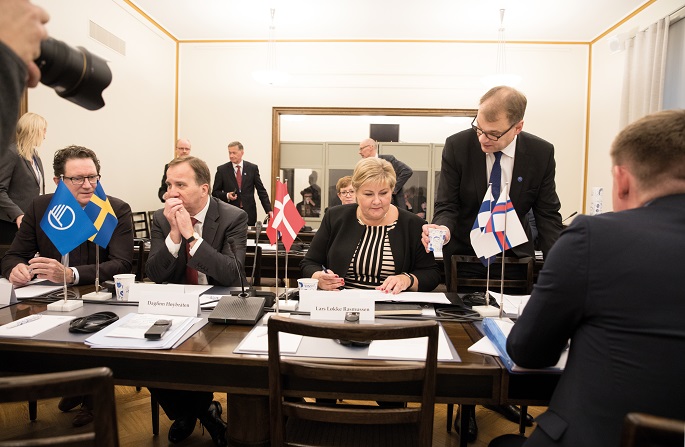Nordic citizens to have joint e-identity system
Published : 02 Nov 2017, 22:31
While the process of European integration is feared of stalling, the Nordic countries have made another step forward in adopting a resolution to introduce a joint electronic identity system.
The announcement was made during a Nordic Council meeting in Helsinki on Thursday.
The Nordic Council is a cooperative forum of the parliaments of the five countries namely Denmark, Finland, Iceland, Norway and Sweden.
According to the newly-adopted plan, a resident of any of the five Nordic countries may in the future be identified almost instantly in another of the five for daily use, such as collecting social benefits or opening a bank account.
Currently, a Nordic citizen has the right to choose where to live and work in the five countries, but if moving to a new country he or she nevertheless has to apply for an ID number in order to open a bank account, to apply for a mobile phone number, or even to receive a salary.
The development of the e-ID is a spin-off of a wider initiative two years ago raised by the Centrist grouping in the Council about an actual Nordic citizenship.
Anna-Maja Henriksson, member of the Finnish delegation and the Nordic Council Centrist grouping, made a formal introduction of the plan at the Helsinki session on Thursday.
She said the e-ID would be "a bit like a key a Nordic resident can use to open doors that would be otherwise remain closed as he or she does not have a civil registration number for the country he or she currently lives in".
The new system will not be based on the current social security numbers at all, but will be an electronic identification. The current social security numbers will remain valid and functional.
Although there is no timetable given, but the plan is based on a mutual recognition of current e-identification and e-signature systems maintained across the Nordic countries.
Henriksson told media that she believed Finland would be in the lead for producing an e-ID that would work for everybody in the region.
Finnish Prime Minister and leader of the Finnish Center Party, Juha Sipilä, told the Council that his government would go ahead with the plan.


